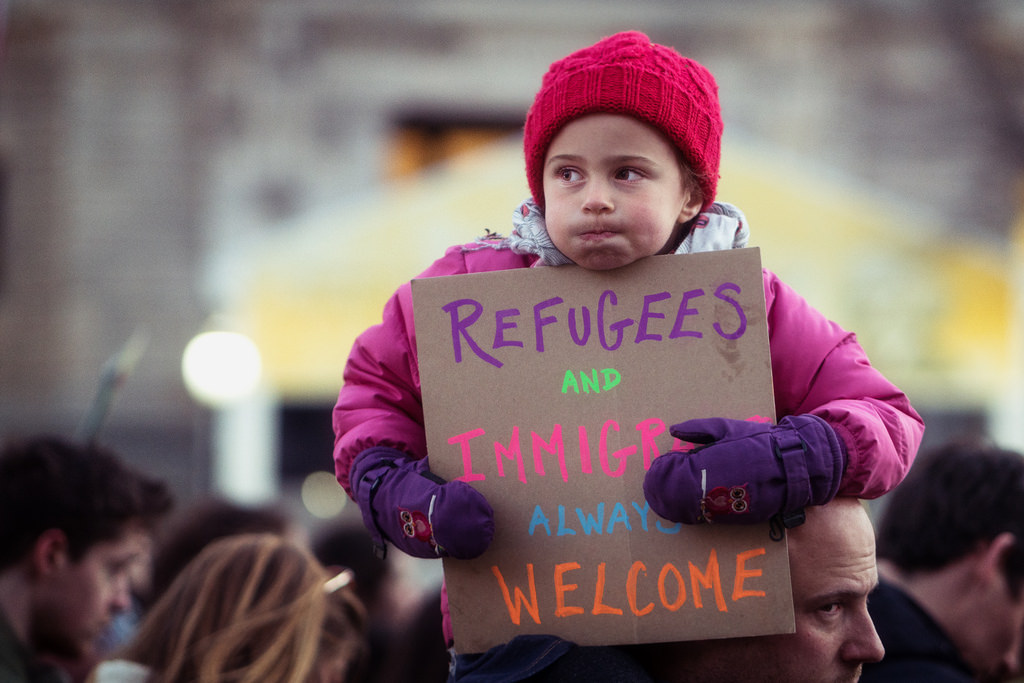The United States has officially begun the process to close its borders, imposing a waiting period on seven Muslim-majority nations in an attempt to dispel terrorism.
On Jan. 27, President Donald Trump signed an executive order halting immigration from seven Muslim-majority nations, including Syria, Iran, Sudan, Libya, Somalia, Yemen, and Iraq. This order also applies to people with dual citizenship.
The travel ban excludes countries like Saudi Arabia, the United Arab Emirates, and Egypt, who have ties to the United States through terrorism.
The fifth of seven executive orders signed since his inauguration also gives preference to refugees who are Christians and reduces the number of refugees allowed into the country from 110,000 to 50,000. Refugees from Syria have also been fully denied entry, with no indication of whether they will be allowed to immigrate at a later date.
The executive order states, “Numerous foreign-born individuals have been convicted or implicated in terrorism-related crimes since September 11, 2001, including foreign nationals who entered the United States after receiving visitor, student, or employment visas, or who entered through the United States refugee resettlement program.”
Since the signing, there have been protests in many big cities across the country such as Seattle, Boston, Chicago, Los Angeles, and Columbus, spawning the popular chant and hashtag, “No ban, no wall.”
A protest held at Ohio University on Wednesday evening ended in around 70 people being arrested and charged with criminal trespassing. The students were protesting both Trump’s travel ban and the creation of the U.S.-Mexico border wall.
The student protesters were also demanding that Ohio University become a sanctuary campus, meaning that the campus would be a safe place for refugees and undocumented immigrants.
There are also many across the nation, elected officials and otherwise, who believe that the the travel ban is unconstitutional and illegal.
The American Civil Liberties Union (ACLU) has filed a lawsuit against Trump and his executive order, temporarily halting the order.
Trump’s executive order affects more than just the people who are attempting to enter the country. It also applies to the visas that have already been given.
In California, a visa holder named Ali Khoshbakhti Vayeghan was deported to Dubai from LAX when she was attempting to travel to Iran. The federal court of California deemed her deportation unconstitutional, ruling that she be allowed to return to the U.S.
This story and others like it have instilled a fear within the holders of these visas, many workplaces and universities across the nation, including our own, wondering what this travel ban will mean for them.
“In a diverse community like ours, there are bound to be some who are worried for themselves, a family member, friend or colleague,” President Beth Paul said. “To our international students, faculty and staff, your Cap Family stands with you. To those who are fortunate enough to be secure in your citizenship, I ask you to be especially sensitive to those who may feel vulnerable. Be informed, kind and empathetic.”
Many other schools have expressed issues with the vague nature of the executive order and the worry that it is causing.
“Ohio State joins our colleagues — including those represented in the Association of American Universities and Association of Public and Land-grant Universities — in concern over the effects of this policy,” Ohio State University President Michael Drake said in an email to members of the campus.
Students on our campus who are worried or unsure of what is to come have several options including Health and Wellness counseling, pastoral counseling, and speaking with Jennifer Adams, president of International Relations, who is available to answer any questions students may have.
The university is also working closely with Student and Community Engagement, International Education, English as a Second Language and Study Abroad, Diversity and Inclusion, and the Law School among others to help inform, support, and assist students during this time.
“I want to assure all of our students and employees, documented, undocumented, foreign national and U.S. citizen, Capital is a place where everyone belongs. We are glad you’re here, and we value you.” President Paul said.

